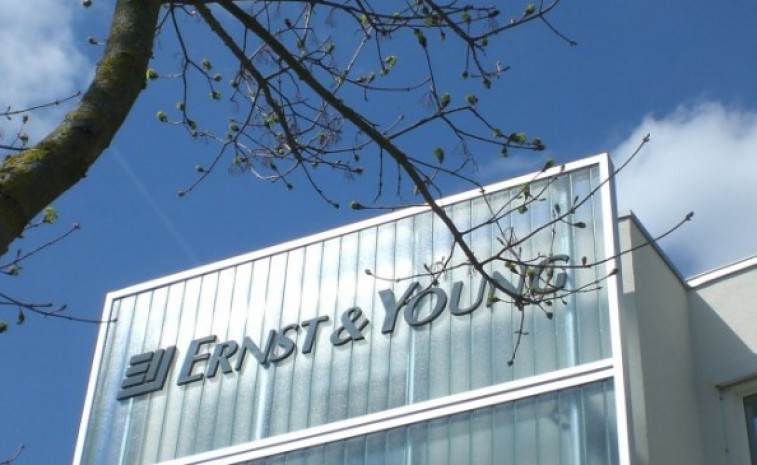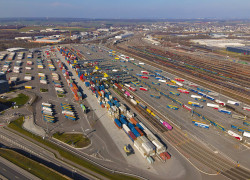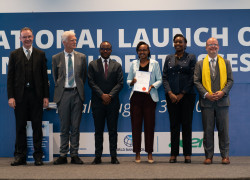Fraud and corruption risks impact corporate international expansion
EY’s Europe, Middle East, India and Africa (EMEIA) Fraud Survey, Fraud and corruption – the easy option for growth?, has found that greater pressure on businesses to grow revenues together with market volatility is creating increased risk in expansion opportunities. Challenges, including geopolitical instability, commodity and currency price volatility, as well as economic sanctions, are pushing companies and their executives toward high-risk behavior.
The survey, which polled 3,800 employees of large businesses in 38 countries, found that nearly 33% of survey respondents report that management is under increased pressure to expand into higher risk markets. In these markets, 61% of respondents see corruption in companies as widespread, and 37% of respondents report that companies often overstate their financial performance.
The risk of fraud, however, is not limited to rapid-growth markets . 26% of senior management respondents said they have heard of early recognition of revenue occurring in their organization in the past year – the type of behavior that has been at the center of numerous high-profile frauds. In addition, 21% of respondents report that bad news about financial performance is not being shared openly.
Gérard Zolt, Fraud Investigation & Dispute Services (FIDS) Leader at EY Luxembourg, says: “The risks of fraud, bribery and corruption are real. Businesses are facing complex restrictions in the way they conduct business with evolving sanctions regimes and new risks, such as cybercrime, having the potential to significantly disrupt operations. Businesses need to have their eyes wide open in their pursuit of high-risk growth strategies.”
Are fraud and corruption the easy options for growth?
While senior management may be tempted to take risks to accelerate short-term growth, the survey shows a clear correlation in companies that are growing and are taking compliance seriously. Respondents whose business has experienced revenue growth in the last two years are:
- More likely to rate their company’s ethical standards as “very good”
- More likely to have or know about their company’s anti-bribery/anti-corruption policy
- More likely to see operations across markets meeting the same ethical standards
Gérard Zolt continues, “Our survey shows that 20% of employees believe anti-corruption policies will hold them back from growing their business. Our view is this shouldn’t be the case. To grow in a high-risk market you need the right controls and processes. You need your teams to be trained to make the right choice when asked to pay a bribe or ‘cook the books’, and you need the right tools to monitor activity so these risks can be addressed in a timely manner. In addition, at a time where Luxembourg is reaffirming its commitment to positioning itself on the international stage and to striving to promote its excellence in country branding, it is inconceivable that companies based in Luxembourg could tarnish our positive image abroad.”
Businesses are still not protecting themselves enough
Our survey shows that many businesses still do not have even the basic building blocks in place for effective compliance.
- 42% of respondents say that their company does not have an anti-bribery/anti-corruption policy, or are unaware of them
- 36% of respondents have not had anti-bribery/anti-corruption training
- 24% say their company does not have a whistleblowing hotline
The results also confirm that financial services organizations have responded to the intense pressure that they have been under from regulators, customers and others. Compared with other sectors, they are doing more to focus on compliance and the behaviors of their staff. But there are still gaps: there are respondents in the financial services sector who report that their business does not have an anti-bribery/anti-corruption policy or a whistleblowing hotline. Also, there are senior managers who are perceived as showing little attention to anti-money laundering rules, unauthorized trading or misspelling issues.
Leadership’s commitment is critical
Not all senior management is communicating its commitment to high ethical standards. Furthermore, there is a disconnect between their view and that of more junior staff: 44% of senior management said they frequently communicate the importance of high ethical standards but only 30% of employees agree.
Gérard Zolt concludes, “Businesses remain under intense pressure to grow and, in this market, operating in the gray area between legal and illegal may appear to some as a viable option. But our survey results show that this is a false choice, and that growth can be achieved while appropriately managing the risks of fraud and corruption. Effective compliance is not a barrier to growth; it is a requirement for sustained success. As a predominantly export-driven economy, it would be unwise that weaknesses in internal controls would threaten the competitiveness of Luxembourg.”
View the report online at: www.ey.com/FIDS
Communiqués liés
RSA launches technology and management liability insurance s...
RSA Luxembourg, part of Intact Insurance Specialty Solutions, today announces th...
Lancement d'une nouvelle connexion intermodale entre Bettemb...
CFL multimodal a le plaisir d'annoncer le lancement de sa nouvelle connexion i...
Experts from LUNEX award first micro-credentials in Rwanda o...
The Rwanda Ministry of Education (MINEDUC) formally inaugurated Syllabi, a publi...
ERG Notes that ENRC Secures Landmark Victory as Court of App...
Eurasian Resources Group (ERG), a leading diversified natural resources group he...
LetzToken et La Vie est Belle annoncent leur partenariat ouv...
«?LetzToken?», plateforme de tokenisation pionnière basée à Luxembourg, et ...
ERG announces a Pre-Export Finance Facility Agreement based ...
Eurasian Resources Group (“ERG”, “The Group”), a leading diversified nat...
Il n'y a aucun résultat pour votre recherche







